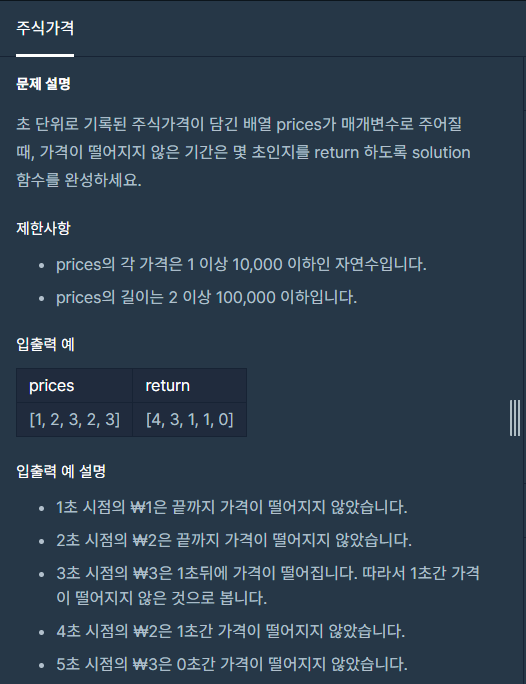
import java.util.*;
public class 주식가격 {
public Queue<Integer> solution(int[] prices) {
Queue<Integer> q = new LinkedList<>();
for(int i=0; i<prices.length; i++){
int cnt = 0;
for(int j=i+1; j<prices.length; j++){
if(prices[j] >= prices[i]){
cnt++;
}else{
cnt++;
break;
}
}
q.offer(cnt);
}
return q;
}
}
큐를 사용하긴 했지만 삽입할 때만 자료형을 쓰며, 시간 복잡도가 n^2 이 나왔다.
시간 복잡도를 줄이기 위해 stack 자료형을 사용하여 문제를 다시 풀었다 위의 방식대로 하여도 효율성 테스트까지는 통과했다.
import java.util.*;
class Solution {
public int[] solution(int[] prices) {
int[] answer = new int[prices.length];
Stack<Integer> s = new Stack<>();
for(int i=0; i<prices.length; i++){
while(!s.empty() && prices[s.peek()] > prices[i]){
answer[s.peek()] = i - s.peek();
s.pop();
}
s.push(i);
}
while(!s.empty()){
answer[s.peek()] = prices.length-s.peek()-1;
s.pop();
}
return answer;
}
}